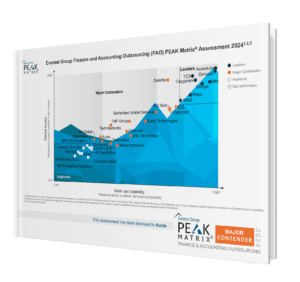Customers disputing invoices and taking adjustments can occur daily in many Accounts Receivable (AR) operations, for a variety of reasons. But unauthorized or excessive deductions can create major pain for organizations, impacting operational efficiency, cash flow, and profitability.
An effective deductions management process is essential for resolving disputes quickly and consistently between your business and your customers – ensuring you collect payments expeditiously without straining relationships or lowering your company’s bottom line.
Customer deductions and disputes are an inevitable part of the AR process, occurring after a customer doesn’t pay – and thus, disputes – all or part of an invoice.
Some deductions are straightforward; for instance, customer agreements may allow for volume discounts or other purchasing power.
However, it’s not uncommon for customers to take other deductions: claiming product shortages or damage, for example.
A structured deductions management process is vital for tracking these claims, validating disputes promptly, ensuring payments are collected or corrected, and effectively communicating with customers.
Inefficiency risks revenue leakage or wasted revenue that is never recovered. EY states that companies typically lose 1-5% of their realized EBITDA annually to revenue leakage – potentially amounting to millions in lost cash.
Lengthy back-and-forth exchanges frustrate customers and delay rightful payments as well, which impacts working capital that could be invested in other parts of the business.
More than half of AR professionals rank resolving deductions as their most difficult task. Let’s examine 5 deduction management best practices that can recapture leakage before it puts a dent in your profits.
5 Essential Deductions Management Strategies
1. Stay on top of customer policies with a robust deductions management process
Many large customers such as “big box” retailers maintain strict policies for managing disputes; for instance, only allowing suppliers to dispute deductions within 60 days.
Staying on top of such requirements is essential to ensuring your business is not stuck with invalid deductions and write-offs.
Only 37% of enterprises reported success collecting unearned cash discounts from their customers, states the 2021 Customer Deductions Benchmark survey here.
An effective deductions management process helps you log and prioritize unresolved disputes to ensure a timely response, using criteria like time passed since the dispute was raised, customer policies, reason for the dispute, dollar amount, and importance of the customer relationship.
Consider:
- Know your customers’ policies. Proactively investing time upfront into understanding customer policies ensures revenue isn’t lost because a response window was missed.
- Design processes for success. Once you understand customer requirements, tailor processes to reduce revenue leakage by working within their structures. For instance, clearly defined workflows for handling different types of erroneous deductions speed response because teams don’t need to figure out the best path forward.
- Measure performance. Tracking key metrics like Days Deduction Outstanding (DDO) offers insight into how effectively open Accounts Receivable deductions are managed. A high DDO indicates an inefficient process that requires tweaking.
2. Leverage technology to resolve Accounts Receivable deductions faster
5-10% of invoice disputes are invalid, according to the benchmark survey.
However, traditional processes for recapturing revenue are labor-intensive and error-prone. They require AR staff to manually search and retrieve data from multiple systems, gather missing documents from customers through cumbersome phone or email conversations, and combine information scattered across multiple departments, systems and external sources.
Abundant manual processes also make standardization nearly impossible, leading to inefficiency, higher costs, and people-dependent processes.
Leveraging technology like automation and artificial intelligence is essential to optimizing the deductions management process for AR.
For instance, automation can speed and standardize processing by automating case priority assignments, approval workflows, downloading of key documents like Proof of Delivery (POD) and Bill of Lading (BOL), and more.
Automation can avoid repetitive work as well, enabling AR staff to focus on more important tasks. For instance, using customer trends to automatically approve deductions for the same amount and reason every month.
Taking advantage of EDI (electronic data interchange) payment methods is another important optimization strategy, enabling you and your customers to securely send and receive information related to payments directly between your ERP systems.
With automatic access to backup data needed for validation, AR can avoid delays stemming from manual processing errors, mailed documents, or locating separate files.
Enterprises can also leverage technology to streamline communication, creating collaborative environments where AR can chat with customers in real time.
3. Centralize information in an Accounts Receivable claims repository
Deduction management is not a stand-alone process, requiring input from sales, logistics, and other departments.
But siloed operations and ineffective communication draw out the resolution cycle, forcing AR staff to waste significant amounts of time hunting down critical information from other teams.
The benchmark survey ranked cross-team collaboration as the biggest internal challenge to resolving deductions effectively.
Creating an AR claims repository is a key deduction management best practice, delivering full visibility into outstanding disputes across your enterprise.
Storing all relevant documents in a cloud-based, centralized information hub like Microsoft SharePoint enhances cross-team collaboration, ensuring stakeholders can easily access the information they need to quickly resolve claims.
It also facilitates production of weekly deduction management reports, driving action plans for urgent issues.
Maximize efficiency by organizing documents based on business preference; for instance, categorizing by reviewer or customer. Organizing claims by type and reason also helps enterprises identify inefficient operational procedures that drive deductions, enabling corrective measures.
Real-time access in cloud-based platforms further drives efficiency by allowing multiple stakeholders to review documents without confusion over versioning.
Platforms like SharePoint also offer stringent security practices, such as identity management controls that prevent unauthorized access.
4. Increase internal controls through segregation of duties
Accounting departments generate the second-highest amount of fraud in a corporation, according to the Association of Certified Fraud Examiners (ACFE). Unfortunately, that brings a high price, with average losses exceeding $1.1 million.
Abusing write-offs is a leading source of AR fraud, when dishonest employees record write-offs to a customer account and pocket the funds.
Spreading the deductions management process across multiple employees stands as a core internal control, decreasing opportunities for committing and hiding fraud while performing work.
Putting more eyes on the process also increases oversight for spotting and correcting errors. It further moves organizations toward a process-dependent mindset, enabling standardization that reduces reliance on tribal knowledge.
Segregation of duties increases accountability as well. Defining authority and responsibility for each action improves visibility into the deductions management process, while also helping staff hone their expertise because their attention isn’t spread too thin.
5. Prioritize root cause analysis for managing deductions
Deduction management is rife with complexity, with disputes stemming from a myriad of issues. Regular and thorough root cause analysis helps identify trends and underlying challenges that cause recurring issues, such as operational inefficiencies in your warehouse that damage products.
That way, you can take corrective actions to prevent “self-inflicted” revenue loss.
Here are key actions to consider:
- Enhance your ERP (enterprise resource planning) system with reason codes that clearly indicate why customers take short payments.
- Identify top “offenders” representing the most deductions or biggest dollar amounts.
- Prioritize investment of resources into rectifying issues with the biggest impact.
- Act proactively to eliminate preventable deductions by sharing analysis with relevant departments and management.
- Mitigate communication gaps with customers, which are often a primary cause of disputes. For instance, automating purchase order changes helps ensure updates aren’t missed and orders aren’t fulfilled incorrectly.

Stop Customer Disputes from Putting a Dent in Your Revenue
AR disputes are a common occurrence, and the ability to resolve deductions effectively holds the promise of significant payoffs. But most AR organizations lack the time or knowledge to implement best practices for deductions management effectively.
Partnering with an Accounts Receivable outsourcing expert delivers the experience and expertise to streamline validation and identify erroneous disputes promptly.
Quality AR providers come to the table with the increased productivity, best practices, and best-in-class technologies like automation, artificial intelligence, and machine learning to speed access to your hard-earned revenue.
They are experts at optimizing Finance & Accounting processes to achieve peak performance.
Exceptional providers also guarantee AR outsourcing outcomes, assuring expected cost savings and ROI.
Nearshoring to an exceptional Accounts Receivable provider in Latin America helps AR teams beat the severe Finance & Accounting labor shortage in the U.S. as well – providing instant access to a deep pool of top talent in your time zone.
AR organizations currently face a steep challenge growing their teams in U.S., with 54% of Finance & Accounting managers continuing to see increased quits, according to the 2023 Robert Half Finance & Accounting Salary Guide.
Nearshoring further avoids challenges that have many CFOs rethinking Asian-based outsourcing models in India and other locations, such as language and cultural barriers, difficulty doing business across faraway time zones, alarmingly high turnover, and poor internet connectivity after the transition to remote work.
By contrast, choosing an outsourcer in the same region of the world maximizes opportunities for collaboration, communication, innovation, and continuous improvement – driving the highest productivity and performance.
With the right AR outsourcing partner, you can feel confident that earned payments are received in full – avoiding impacts on revenue and cash flow while balancing good relationships with your customers.
Struggling with managing deductions and customer disputes effectively? Schedule a consultation with our Accounts Receivable Outsourcing experts to learn how they can help you achieve peak performance.



